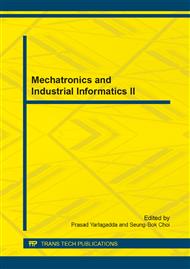p.976
p.981
p.986
p.990
p.994
p.998
p.1003
p.1009
p.1013
Advances in Online Authority Research
Abstract:
As previous research has established that communication and public relations play a crucial role, to understand the resources needed for effective online intervention has been proven particularly helpful to locate in time the central issue. Science citation index expanded (SCI-EXPANED) and Social Sciences Citation Index (SSCI) database on web of science are gleaned, concerning advances in online authority research. The result indicates that the main research territory is England, accounting for 30%, then followed by USA and Spain of 20% respectively. The number of publication literature on this topic mainly distributes in recent 5 years, reaching climax of 4 in 2011. And from the analysis of research area, research on communication accounts for 40%, then followed by computer science of 30%. Overall, the related research topics can be classified in four areas: evaluation of the online authority, cognitive search models, authority in online community and online authority communication. Finally, new opportunities for future research are discussed.
Info:
Periodical:
Pages:
994-997
DOI:
Citation:
Online since:
July 2014
Authors:
Keywords:
Price:
Сopyright:
© 2014 Trans Tech Publications Ltd. All Rights Reserved
Share:
Citation:


